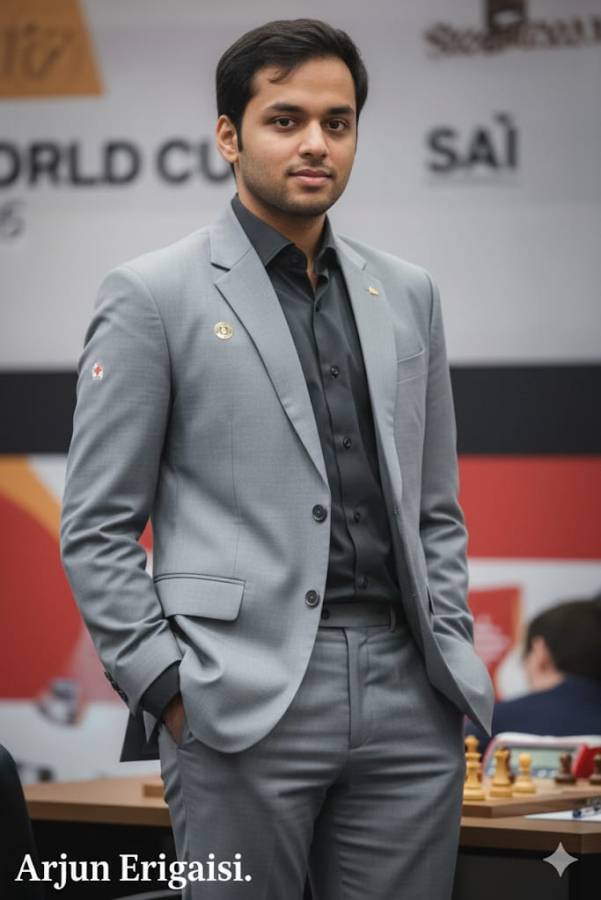
In the Chess World Cup in Goa, where every move is a quiet war of calculation and composure, Arjun Erigaisi is beginning to look unstoppable. The 22-year-old from Warangal has strung together three consecutive victories, reminding the chess world that resilience is often the sharpest weapon on the board.
Arjun belongs to the new generation of Indian chess prodigies that includes Gukesh Dommaraju and R Praggnanandhaa. While both of them earned spots in the 2024 Candidates Tournament, Arjun narrowly missed out. That disappointment, he admitted, took a heavy emotional toll. “The first few days of January were very hard,” he said in an interview earlier this year. But true champions rise not by avoiding defeat, but by learning from it. Arjun did exactly that, turning frustration into focus.
Now ranked world No. 4, Arjun is back on the global stage, and his performance so far at the World Cup has been nothing short of commanding. Seeded second, he received a bye in the opening round, then swept through the next two with poise and precision. After defeating Bulgarian Grandmaster Martin Petrov in the second round, Arjun notched his third win in succession on Friday (November 7, 2025) by overcoming Uzbek GM Shamsiddin Vokhidov. Using the white pieces, he registered a smooth 30-move victory that reflected not just preparation but confidence.
Each of Arjun’s wins has carried the quiet message that his game has matured. His moves have become less about proving his talent and more about demonstrating control. In a sport where one mistake can undo hours of calculation, composure is everything.
India’s strength in chess, however, is no longer limited to one or two stars. Pentala Harikrishna, one of the country’s most experienced players, showcased his clinical precision by outplaying Belgium’s Daniel Dardha in just 25 moves. The 39-year-old from Guntur attributed his win to deep preparation and a few inspired over-the-board decisions. His calm approach contrasts beautifully with the fierce ambition of younger players like Arjun, showing how India’s chess scene now spans generations united by excellence.
The day also saw Pranav V fight an exhausting six-hour battle against Lithuania’s Titas Stremavicius before eventually drawing the game. His endurance and patience reflected the depth of India’s rising chess ecosystem, where even newcomers are learning to match the stamina of the world’s best.
Meanwhile, other top Indian contenders, including Gukesh D and Praggnanandhaa, began their campaigns with solid draws against strong European opponents. The presence of so many Indian names in the top rounds speaks to a larger story—India’s transformation from a land of individual prodigies to a true chess powerhouse.
Pranesh M also made an impression by drawing with Germany’s Vincent Keymer, while Diptayan Ghosh, who earlier stunned former world challenger Ian Nepomniachtchi, continued his fine form with a draw against Gabriel Sargissian.
What emerges from this flurry of Indian performances is a portrait of a nation that no longer sees chess as a solitary pursuit. These players are not just representing themselves; they are shaping India’s new identity in global sports—a blend of intellect, patience, and strategic brilliance.
For Arjun Erigaisi, each victory is more than just a point on the scoreboard. It is redemption, validation, and a reminder that setbacks often precede greatness. His journey through the Chess World Cup is a story of quiet determination—one move, one match, one lesson at a time.





















